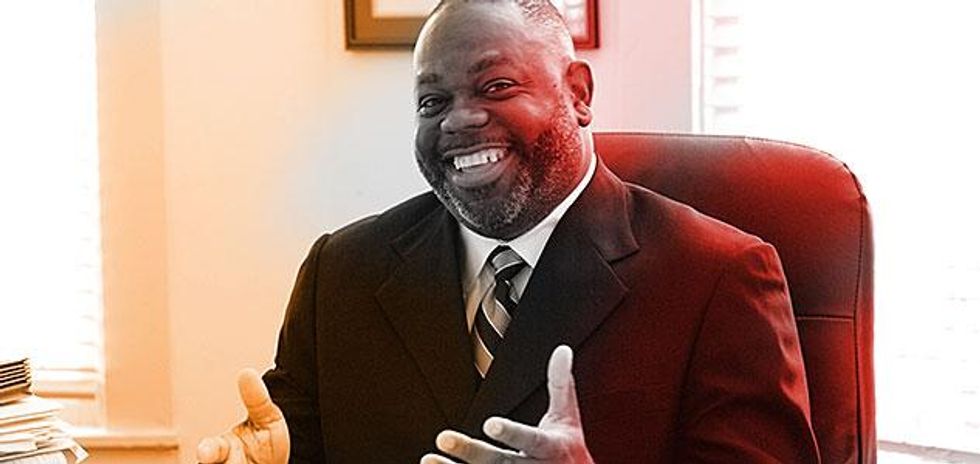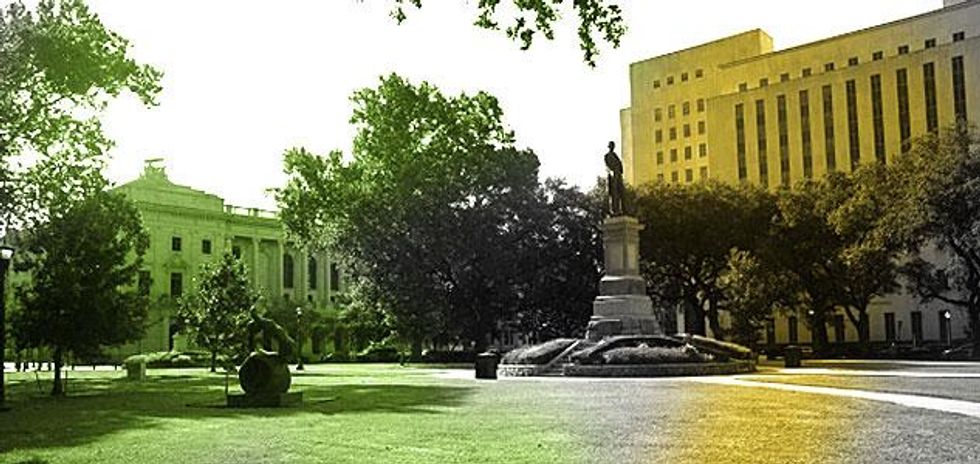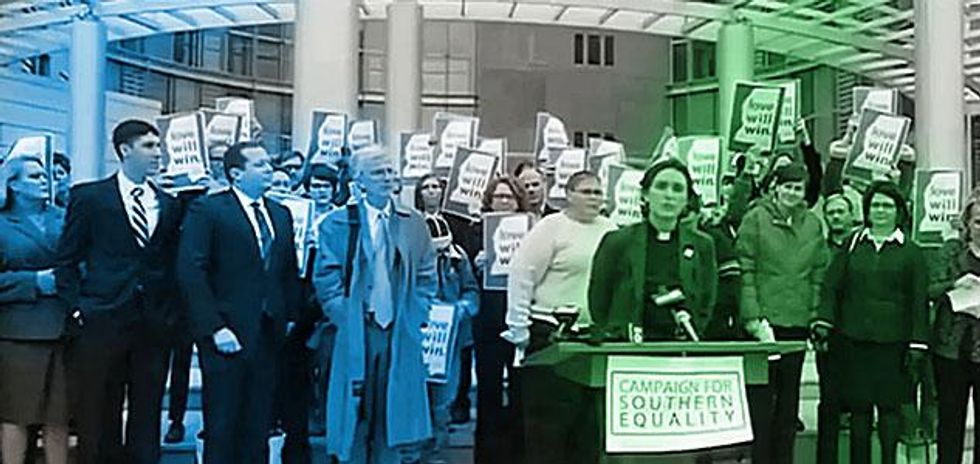 What's Going on in Mississippi?
What's Going on in Mississippi?
Mississippi marriage litigation is moving very quickly and showing significant progress.
Until recently, Mississippi's only marriage case was a divorce-related suit in state court that has been moving quite slowly. But in October, superstar lawyer Roberta Kaplan filed a lawsuit along with the Campaign for Southern Equality in federal court. District Judge Carlton W. Reeves (pictured above) ruled promptly in November that the state's marriage ban is unconstitutional. The state is now appealing that decision to the Fifth Circuit Court of Appeals, with marriage equality on hold until the appeals process is complete.
The federal case is particularly strong because the plaintiff couples represent diverse needs. One couple is asking for a brand-new marriage license from the state of Mississippi, while another seeks recognition of their marriage from California.
Kaplan was one of the lead attorneys in the landmark 2013 Windsor v. U.S. case, when the federal Defense of Marriage Act was overturned by the U.S. Supreme Court. Few lawyers are better positioned than she to win the freedom to marry in Mississippi.
 What Happens Next?
What Happens Next?
The Mississippi case is scheduled for oral argument January 9, before the Fifth Circuit Court of Appeals. On the same day, the court will hear cases from Texas and Louisiana. The cases have not been consolidated -- they'll be heard back-to-back.
The state of Mississippi is continuing to defend its marriage ban with the same weak arguments that have failed in most other federal courts. Still, it's impossible to predict what sort of response the state will get at the Fifth Circuit, which tends to be fairly conservative.
 How Do Mississippians Feel About Marriage?
How Do Mississippians Feel About Marriage?
Mississippi has the worst polling numbers on marriage equality of any state in the country. The most recent survey from Public Policy Polling is from November 2013, and it shows support at 22 percent. But that's still an improvement over previous years; the same survey in 2011 showed support for equal marriage rights at just 13 percent.
Gay statistician Nate Silver has predicted that if marriage equality was put to a popular vote, a majority would not favor marriage in Mississippi until 2024.
The state's marriage ban has been affirmed several times, most recently by legislators and voters in 2004. The House voted 97-17 to add a marriage ban to the state constitution, and the Senate voted 51-0. Voters approved the measure by 86 percent to 14 percent.
 Can Gay and Lesbian Couples Get Married in Mississippi?
Can Gay and Lesbian Couples Get Married in Mississippi?
Not yet. After Judge Reeves overturned the state's ban in late November, he imposed a two-week stay on his decision. The Fifth Circuit then extended that stay indefinitely while the appeals process is under way. This could be an early indication that the court is skeptical of marriage equality and that plaintiffs are not assured an easy victory.
Unlike in a few other states, there was no brief window after Judge Reeves's ruling during which gay couples were allowed to marry in Mississippi.
 What Are the Arguments for Marriage Equality?
What Are the Arguments for Marriage Equality?
Roberta Kaplan made a particularly strong case for marriage equality during oral argument before the District Court. She's employing the same general line of reasoning as most other marriage cases -- that marriage is a fundamental freedom, and that the Due Process and Equal Protection clauses of the U.S. Constitution prevent states from banning marriage for gay and lesbian couples -- but as she's a seasoned pro, her delivery is streamlined and authoritative.
"The Supreme Court stated over and over again, as we said in our moving brief in Windsor, that state limitations on the right to marry must still comply with the United States Constitution," Kaplan pointed out during oral argument. She also refused the state's claim that the 1972 Supreme Court case Baker v. Nelson prevents federal courts from addressing marriage equality today.
 What Are the Arguments Against Marriage Equality?
What Are the Arguments Against Marriage Equality?
The state's claims are all the same boilerplate antigay arguments that have failed in most other federal courts. Lawyers for Mississippi claim that the 1972 Baker decision indicates that there is no "substantial federal question" at issue regarding same-sex marriage, and therefore the U.S. government has no stake in the issue and federal courts should not rule on the constitutionality of the ban. But Kaplan pointed out that significant doctrinal developments since then overrule Baker.
The state also put forth claims about "responsible procreation" and "defending tradition," which Judge Reeves dismissed out of hand.
Mississippi also argues that the state should alone be allowed to determine its marriage laws, immune from the requirements of the U.S. Constitution.


 What's Going on in Mississippi?
What's Going on in Mississippi? What Happens Next?
What Happens Next? How Do Mississippians Feel About Marriage?
How Do Mississippians Feel About Marriage? Can Gay and Lesbian Couples Get Married in Mississippi?
Can Gay and Lesbian Couples Get Married in Mississippi? What Are the Arguments for Marriage Equality?
What Are the Arguments for Marriage Equality? What Are the Arguments Against Marriage Equality?
What Are the Arguments Against Marriage Equality?














































































Viral post saying Republicans 'have two daddies now' has MAGA hot and bothered